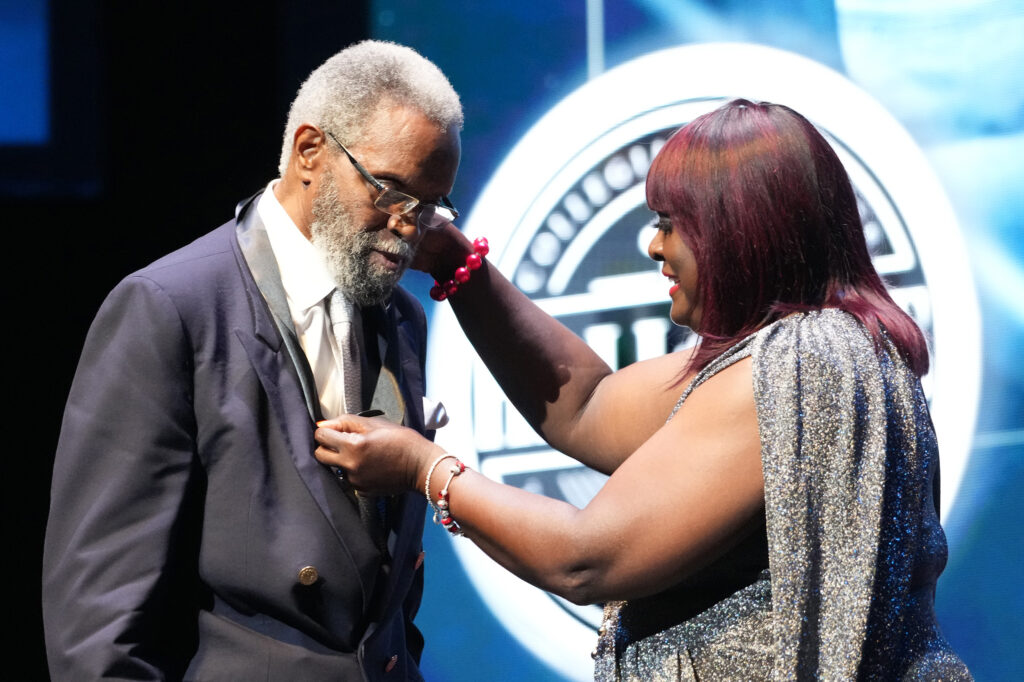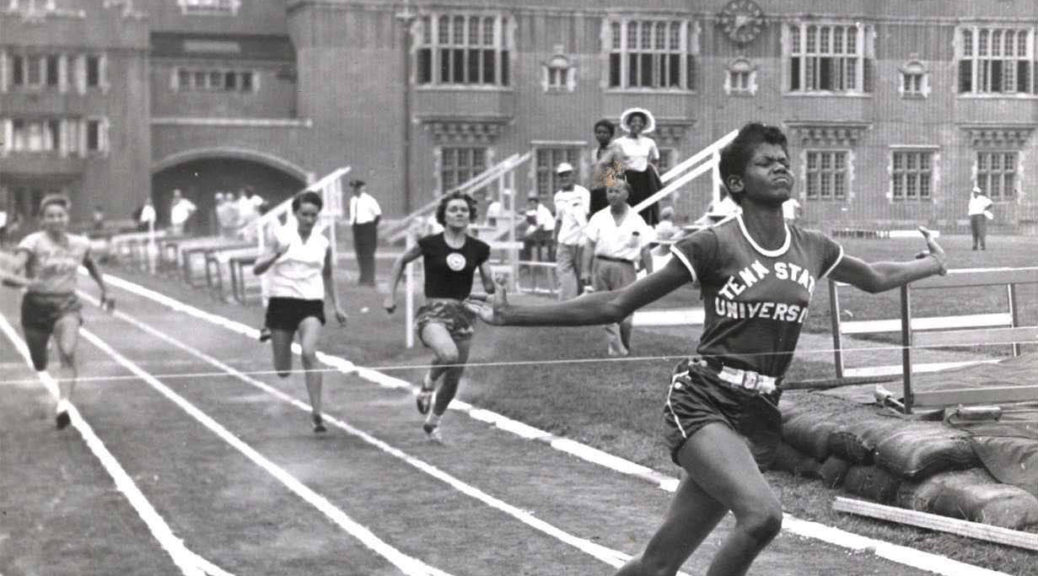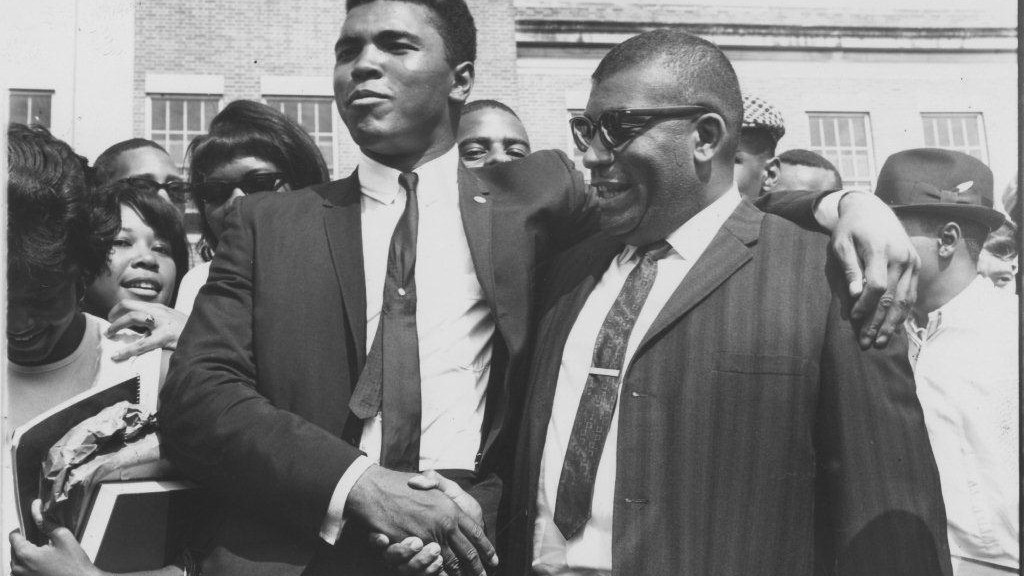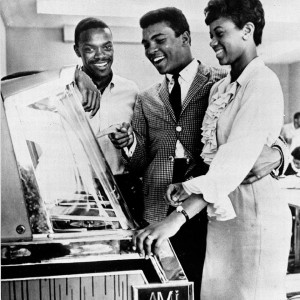By TSU Athletics
EUGENE, ORE. (TSU News Service) — Tennessee State University track and field legends Ralph Boston ’61 and Wilma Rudolph ’63 were both named to the inaugural class of the U.S. Track & Field and Cross Country Coaches Association Collegiate Athlete Hall of Fame at a ceremony on June 6 at the Hult Center for the Performing Arts.

Chandra Cheeseborough-Guice, TSU’s director of Track and Field and Olympic gold medalist, who was present at the ceremony, presented Boston his award. Cheeseborough-Guice also received Rudolph’s award on behalf of her family.
“It was an honor to be selected to present Ralph Boston his award at the inaugural NCAA Hall of Fame induction ceremony, and to be asked to receive Wilma Rudolph’s award on behalf of the Rudolph family,” Cheeseborough-Guice said. “I am so honored to be in the company of greatness and represent Tennessee State University.”
“The Collegiate Athlete Hall of Fame is intended to acknowledge the great athletes who have made collegiate track & field and cross country such incredible sports,” said Sam Seemes, CEO of the USTFCCCA. “Not only do we have a large queue of past athletes that are worthy of enshrinement into this hall of fame, but we also recognize a vital responsibility in producing first-class presentations to properly commemorate their accomplishments”
Ralph Boston’s greatness was just beginning when he won the NCAA Championships long jump title in 1960. That summer he went on to break the world record set by Jesse Owens in 1935 while qualifying for the Rome Olympics, where he won the gold medal.
His senior season of 1961 saw him break the indoor world record three times, but that was just a prelude for his outdoor season. Boston recorded the first 27-foot long jump a week before nearly winning the NAIA team title for Tennessee State all by himself with four wins and a tie for second. In July he improved his long jump world record to 8.28m (27-2) in winning the U.S.-USSR dual meet in Moscow.
Rudolph didn’t have to travel far to find her home for collegiate track & field. She grew up in Clarksville, Tennessee, about 15 miles outside of Nashville, where Tennessee State had become a mecca for women’s sprinting long before organized national collegiate track and field was a reality for women.

By the time she was enrolled at Tennessee A&I (as TSU was known then) in the fall of 1958, she was surrounded by national champions and Olympic medalists. She had earned a bronze medal with three of the group as part of the U.S. 4×100 relay team at the 1956 Olympics in Melbourne, Australia while a 16-year-old prep.
Rudolph blossomed while in college, never more so than at the 1960 Rome Olympics, where she became the first American woman to win three gold medals in the same Olympics by winning the 100 and 200 before anchoring the winning 4×100 team. She equaled the world record in the prelims of the 100, one of four world records she set in her days as a collegian.
Without collegiate national championships available to her, Rudolph was dominant at the AAU championships, winning 10 of the 12 AAU championships she lined up for combining indoors and outdoors. She was the first woman to win four AAU titles in the 100 yards/meters, all during her first four years at Tennessee State.
Boston and Rudolph are just two of the initial 30 athletes who will be enshrined. Nearly 150 years has elapsed since the first known intercollegiate competitions of running, jumping, and throwing took place. Those events in the mid-to-late 19th century set the stage for the modern-day sports of collegiate track & field and cross country.
In addition to an annual induction ceremony, plans for a permanent “hall” location are being pursued. “I’m proud that we’re stepping forward to preserve our history,” added USTFCCCA President Leroy Burrell, in his 23rd year as head coach of track & field at the University of Houston. “Many of the coaches in our association agree that a collegiate athlete hall of fame is long overdue to recognize the athletes who have provided us with countless unforgettable moments.”
The induction preceded the 100th edition of the NCAA Division I Outdoor Track & Field Championships held at Hayward Field, June 8-11.







